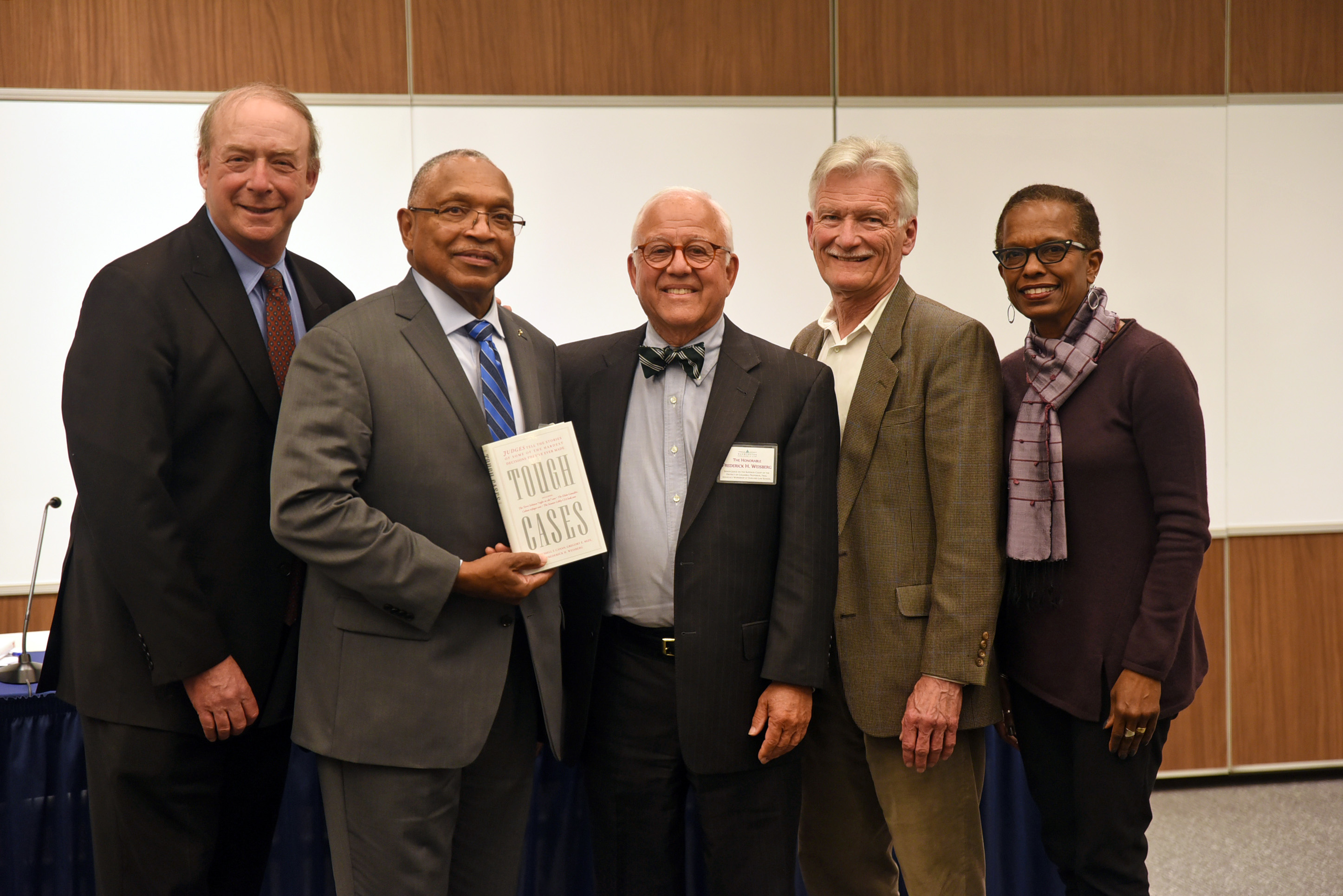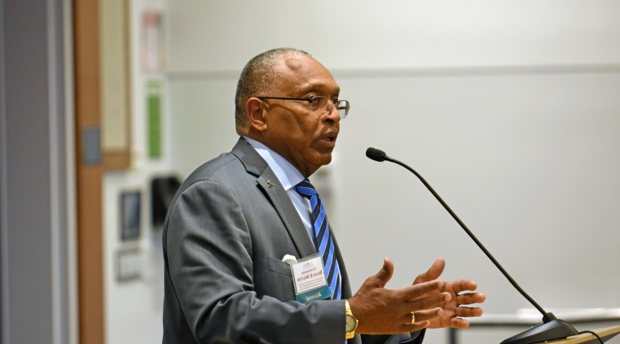
New Book by Past and Present Judges Explores Their Toughest Cases
April 2, 2019
On March 27, Professor Angela Davis introduced the evening’s guest panel of judges whose cases are featured in the new book Tough Cases: Judges Tell the Stories of Some of the Hardest Decisions They've Made. Russell F. Canan, senior judge on the Superior Court of the District of Columbia and an adjunct professor at the George Washington University School of Law; Gregory E. Mize, senior judge on the Superior Court of the District of Columbia and an adjunct professor at the Georgetown University Law Center; Reggie B. Walton ’74, senior judge on the U.S. District Court for the District of Columbia and visiting professor for the Trial Advocacy Workshop at Harvard Law School; and Frederick H. Weisberg, senior judge on the Superior Court of the District of Columbia and visiting professor for the Trial Advocacy Workshop at Harvard Law School, spoke about what it takes to make these decisions while remaining fair.

Some cases played out on a bigger stage than others, including those of Elián González, Terri Schiavo, and Scooter Libby, while others delve into tribal law, mental health, and the difficulties in transitioning from a defense attorney to a judge.
Justin Driver, a law professor at the University of Chicago, reviewed the book in The Washington Post saying, “Against this backdrop, ‘Tough Cases’ stands out as a genuine revelation. At its best, this collection of essays — written by 13 judges who served, or are serving, on various lower courts — candidly reveals that legal questions do not always admit one-sided answers. The editors, Russell F. Canan, Gregory E. Mize and Frederick H. Weisberg, contend in a brief introduction that the volume aims ‘to demystify judicial decision-making and to make the process accessible to ordinary people, who would not otherwise get a ringside seat.’ The book succeeds on this score, and thus provides an invaluable public service, as the judicial branch is perpetually shrouded in mystery. Even more important, though, several judges go further by shedding the self-serving, wholly unrealistic pretense that legal interpretation never confronts shades of gray.”
###